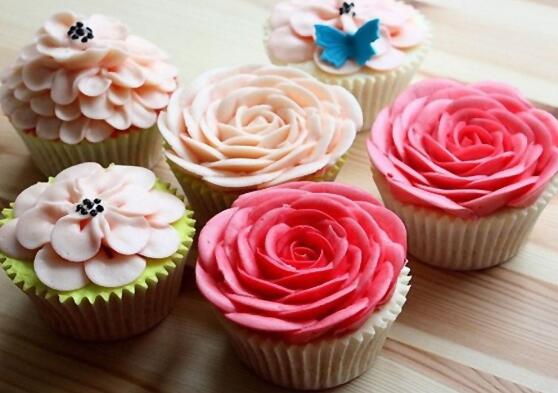
生查子元夕
宋欧阳修
去年元夜时,花市灯如昼。月上柳梢头,人约黄昏后。
今年元夜时,月与灯依旧。不见去年人,泪湿春衫袖。
注释:
1.生查子:词牌名。元夕:农历正月十五夜。元夕是这首词的题目。2.元夜:又称元夕,农历正月十五夜,也叫上元节,唐代以后又称灯节。3.花市:指元夜花灯照耀的灯市。4.春衫:年少时穿的衣衫。
诗句大意:
去年元夜时,花市上花灯照耀,明丽如同白天。月亮升上柳梢头,我们在黄昏后甜蜜约会。(上阙写追忆去年元夜甜蜜往事。)
今年元夜时,月亮和花灯依旧如去年那么美丽。再也见不到去年的伊人,眼泪打湿了我的衣袖。
(下阙写今年元夜重临故地,思念伊人的.惆怅感伤。同样的美景,却是一喜一悲。)
整首词采用今昔对比的写法,写出了物是人非,思念伊人的伤感。
注释译文
词句注释
⑴鹳雀楼:古名鹳鹊楼,因时有鹳鹊栖其上而得名,其故址在永济市境内古蒲州城外西南的黄河岸边。《蒲州府志》记载:“(鹳雀楼)旧在郡城西南黄河中高阜处,时有鹳雀栖其上,遂名。”
⑵白日:太阳。依:依傍。尽:消失。 这句话是说太阳依傍山峦沉落。
⑶欲:想要。穷:尽,使达到极点。千里目:眼界宽阔。
⑷更:再。
白话译文
太阳依傍山峦渐渐下落,黄河向着大海滔滔东流。
如果要想遍览千里风景,那就请再登上一层高楼。
作品鉴赏
文学赏析
这首诗写诗人在登高望远中表现出来的不凡的胸襟抱负,反映了盛唐时期人们积极向上的进取精神。
书法家崔国伟行书《登鹳雀楼》
前两句写所见。“白日依山尽”写山,“黄河入海流”写水。诗人遥望一轮落日向着楼前一望无际、连绵起伏的群山西沉,在视野的尽头冉冉而没;目送流经楼前下方的黄河奔腾咆哮、滚滚南来,又在远处折而东向,流归大海。诗人运用极其朴素、极其浅显的语言,既高度形象又高度概括地把进入广大视野的万里河山,收入短短十个字中,画面宽广辽远。
杜甫在《戏题王宰画山水图歌》中有“尤工远势古莫比,咫尺应须论万里”两句,虽是论画,也可以用来论诗。王之涣的这两句写景诗就做到了缩万里于咫尺,使咫尺有万里之势。
后两句写所想。“欲穷千里目”,写诗人一种无止境探求的愿望,还想看得更远,看到目力所能达到的地方,唯一的办法就是要站得更高些,“更上一层楼”。从这后半首诗,可推知前半首写的可能是在第二层楼(非最高层)所见,而诗人还想进一步穷目力所及看尽远方景物,更登上了楼的顶层。在收尾处用一“楼”字,也起了点题作用,说明这是一首登楼诗。
诗句看来只是平铺直叙地写出了这一登楼的过程,但其含意深远,耐人探索。“千里”“一层”,都是虚数,是诗人想象中纵横两方面的空间。“欲穷”“更上”词语中包含了多少希望,多少憧憬。这两句诗发表议论,既别翻新意,出人意表,又与前两句写景诗承接得十分自然、十分紧密,从而把诗篇推引入更高的境界,向读者展示了。
延伸阅读:
A book by the calligrapher, cui guowei, "the lark building"
See the first two sentences. "Day by mountain" writing mountain, "Yellow River inflow" writing water. The poet looked at the setting sun and the undulating crowd of shanxi, rising slowly at the end of the horizon. The Yellow River, which flows through the lower reaches of the building, roared and rolled south, and in the distance, it turned to the east and flowed to the sea. The poet USES extremely simple, extremely shallow language, the height of the image and the height of the high sum of the thousands of thousands of miles of mountains, the income of ten words, the picture is wide and distant.
Du fu, in "the song and landscape of the painting of the king of the opera", has "the far potential of the ancient moby, and the next to the ten thousand li". Although it is a painting, it can also be used for the poem. The two poems of wang zhiyu made a distance of ten thousand miles, which made a distance of ten thousand li.
The last two sentences write what you think. "Poor li mu", the desire of the poet writing an endless quest, also want to see farther, perception can be seen, the only way is to stand higher, "to the next level. From the second half poem, can infer is likely to be of the first half of the first to write on the second floor (top) can see, the poet, also want to further poor eyesight and see distant scenery, more on the floor of the top floor. At the end, the word "building" also plays a role, which means it is a poem of deng Lou.
The lines seem to have written the process of this building, but its implications are profound and profound. "A thousand li", "a layer", is the imaginary number, is the poet imagination of the space of two aspects. "Want to be poor" "more" the words contain how much hope, how many longings. Two poem published remarks, don't turn over new, unexpected, and with the first two words of ci poems very natural, very closely, so as to push the poem into a higher realm, shows to the readers.
(第一首)
暮色降临,
当你从高大宏伟、
美丽壮观的抚近门,
步入古老的小街,
映入眼帘的是那高耸在,
宽阔平坦的马路两旁的楼房,
一座座楼房重檐翘角,
每层檐下都是漆栋画染,
那一幅幅精美的图案,
五彩斑斓。
门前那一对金字黑匾,
古色古香;
那楼顶和每层楼檐上的彩灯,
交相辉映,
把每层楼房勾勒得,
更加富丽堂皇。
具有悠久历史的故宫,
就座落在清代一条街。
清代一条街历史悠久,
它以悠久的历史文化,
和特有的.风格吸引着,
许许多多的中外游人。
它是我们沈阳的骄傲。
它的过去是古朴典雅,
它的未来将会更加繁荣。
如果你赶上皇家礼仪表演,
那场面可是既壮观又热闹,
无论服装、道具,妆扮,
一律清朝原滋原味,
活脱脱的皇亲贵族,
展现眼前,
让你一饱眼福。
至于街上各类店铺,
陈设都古色古香,
清味盎然。
(第二首)
沈水庭芳以水池叠瀑、
玫瑰芳草、民居倒影,
体现沈阳在母亲河(沈水)的哺育下,发育、成长。
源远流长
马架式的亭廊、
古陨石的陪伴,
如同时空隧道,
将人们带回到,
沈阳远古时代。
沈庭足迹,
一条雾气弥漫的林谷,
流淌着涓涓溪流,
一双双刻录着,
沈阳发展全过程的足迹,
永远地留在林谷之中,
向人们讲述着沈阳,
灿烂的历史与辉煌的今天。
和谐沈庭与特色沈庭,
以假山相隔的池畔绿野,
树木参天、
鸟语花香、
曲径散石,
鸽群、松鼠,
与游人相伴,
一派和谐安泰之景象。
(第三首)
悠悠着,
悠悠着,
把卜着悠了着,
悠悠着。
狼来了虎来了,
马猴跳过墙来了。
宝贝宝贝,
怕不怕,
闭上眼睛别哭了,
把卜着。
悠悠着,
悠悠着,
把卜着悠了着,
悠悠着,
狼走了
虎走了
马猴跳过墙跑了。
宝贝宝贝,
别害怕,
妈妈抱着你,
睡觉,
把卜着,
宝贝宝贝,
别害怕,
妈妈抱着你,
睡觉,
把卜着,
把卜着。



